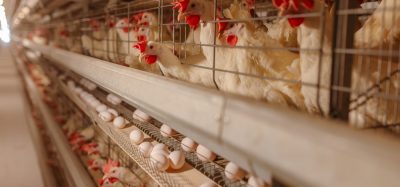Organisations urge “bipartisan” action for food safety concerns
- Like
- Digg
- Del
- Tumblr
- VKontakte
- Buffer
- Love This
- Odnoklassniki
- Meneame
- Blogger
- Amazon
- Yahoo Mail
- Gmail
- AOL
- Newsvine
- HackerNews
- Evernote
- MySpace
- Mail.ru
- Viadeo
- Line
- Comments
- Yummly
- SMS
- Viber
- Telegram
- Subscribe
- Skype
- Facebook Messenger
- Kakao
- LiveJournal
- Yammer
- Edgar
- Fintel
- Mix
- Instapaper
- Copy Link
Posted: 23 May 2023 | Grace Galler | No comments yet
Twelve organisations have sent a joint letter to congressional leaders in the US, urging them to work together to tackle urgent food safety challenges.


In a united effort, 12 organisations have sent a joint letter to congressional leaders, urging them to work together in a “bipartisan manner” to tackle food safety challenges in the US.
Addressed to Chairwoman Cathy McMorris Rodgers, Chairwoman Kay Granger, Ranking Member Frank Pallone, and Ranking Member Rosa DeLauro, the letter emphasises the need for immediate action to address critical issues affecting the safety of the US’ food supply.
The letter highlights two major concerns, firstly, it draws attention to the ongoing infant formula “crisis” in the US. New Food has previously reported on the infant formula shortage and more recently kept its readers updated with the Food and Drug Administration’s (FDA) infant formula market strategy, announced in March 2023.
The letter also references the Operational Evaluation of the FDA Human Foods Program conducted by the Reagan-Udall Foundation. The evaluation prompted the FDA to propose restructuring its Human Foods Program to enhance its ability to safeguard the food supply. While the proposed changes were viewed positively by the organisations, the coalition emphasised in the letter the importance of “modernising the Program further and providing clarity and certainty to the FDA’s budget”.
One of the key recommendations put forth in the letter is the need for collaboration between the FDA and state and local food safety agencies. The organisations argue that these agencies play a key role in conducting inspections, identifying potential illness outbreaks, and facilitating product recalls. However, they claim that recent interpretations of the Federal Food, Drug & Cosmetic Act have “hindered this collaboration”.
What’s more, the organisations have proposed a modification to the Federal Food, Drug & Cosmetic Act that would they claim would allow the FDA to share important, proprietary information with state and local regulatory agencies. By enabling public health authorities to take action, the organisations say a change could help prevent foodborne illnesses that affect an estimated 46 million Americans each year “resulting in lost productivity and medical costs estimated to be as high as $90 billion annually”.
Another recommendation outlined in the letter is the extension of cooperative agreement terms between the FDA and state/local food safety organisations. Currently limited to three years, these agreements play a role in essential food safety functions such as inspections and training initiatives. In the letter, organisations argue that “lengthening the term of cooperative agreements from three to five years would allow more continuity and provide the agency with more data”.
Lastly, the letter’s authors highlight the necessity of budgetary certainty for state and local food safety agencies. The organisations have urged congressional leaders to include a specific funding line item for state and local food safety issues in the FDA’s budget allocation, ensuring these crucial agencies have the necessary resources to carry out their work.
With the aim of safeguarding public health and fortifying the nation’s food safety systems, the coalition had called on Congress to act swiftly and collaboratively.
Related topics
Food Safety, Research & development, Supply chain, The consumer, Trade & Economy
Related organisations
Related regions
Related people
Cathy McMorris Rodgers, Frank Pallone, Kay Granger, Rosa DeLauro








